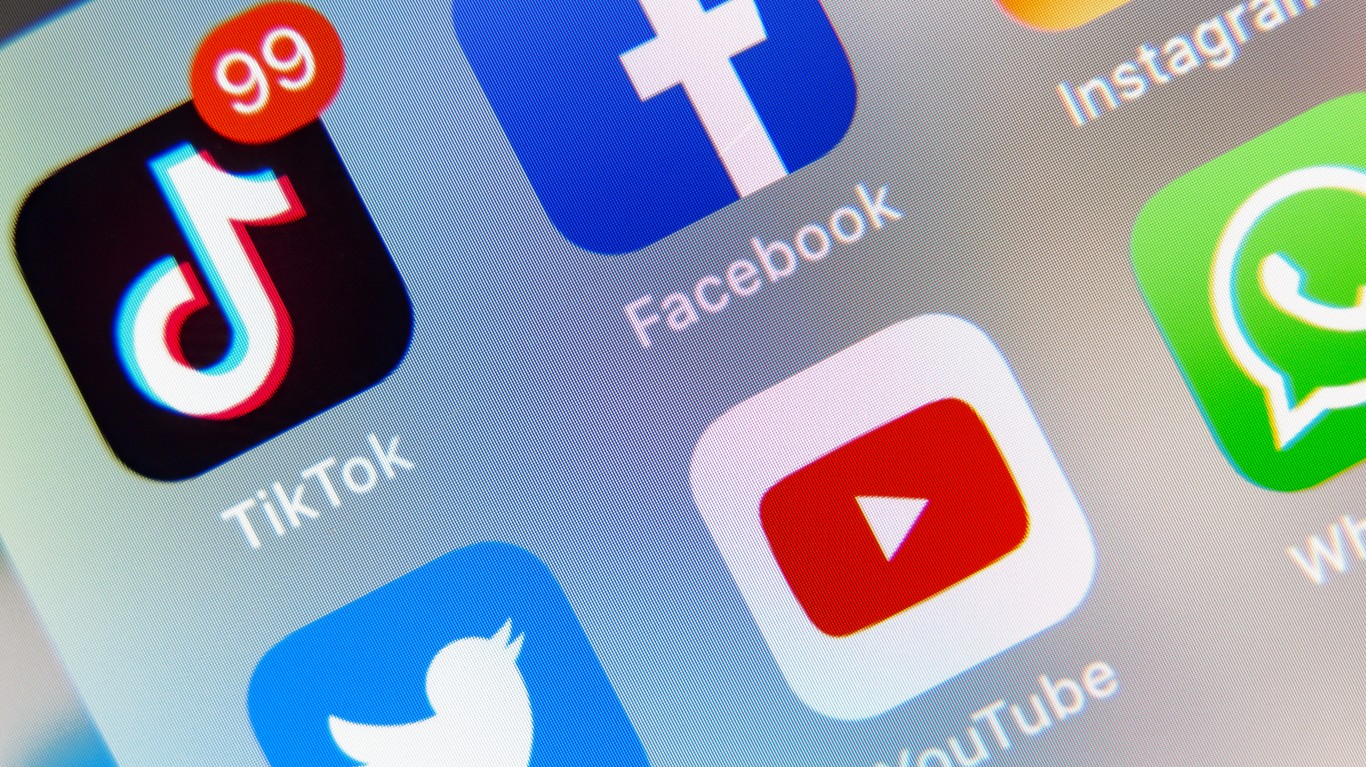Technology
What's Up With Apple: Epic Games Trial Ending, Another Dispute With Facebook, and More

Published:

Epic Games CEO Tim Sweeney, who was the first witness in the trial against Apple Inc. (NASDAQ: AAPL), was bookended by Apple CEO Tim Cook as the last witness. The two-week trial leaks into a third week Monday, with federal District Court Judge Yvonne Gonzalez Rogers set to begin grilling the two combatants.
Gonzalez Rogers is expected to produce a verdict later this summer in the bench trial at which Epic seeks to force Apple to allow app developers to use their own in-app payment systems instead of Apple’s and end the forced royalty payments developers now pay to the world’s most valuable publicly traded company.
During Friday’s testimony, Cook defended Apple’s refusal to allow developers to use their own in-app payment systems, saying, “If we allowed people to link out like that we would in essence give up our total return on” intellectual property, according to The Wall Street Journal.
When the judge asked why Apple was reluctant to allow people a choice to pay less for an app that could be sideloaded or downloaded directly from the developer, Cook replied, “I think they have a choice today. They have a choice between many different Android models of a smartphone, or an iPhone, and that iPhone has a certain set of principles behind it in safety, security and privacy.”
In other words, if developers want to build products for Apple users, they’ll have to follow Apple’s rules and they’ll have to pay an entry fee in order to get a place in the App Store. If that’s too much to swallow, then app developers can build games and apps solely for Android users.
On Saturday, NBC News reported that supporters of Palestine in the recently halted fighting with the Israeli government have undertaken a campaign to give Facebook Inc. (NASDAQ: FB) a one-star review on both the Apple and Google app stores for Facebook’s alleged censorship of pro-Palestinian accounts and posts. NBC reported that Apple has turned down a Facebook request to remove the negative reviews.
The report cited this software engineer’s post on Facebook’s internal message board:
User trust is dropping considerably with the recent escalations between Israel and Palestine. Our users are upset with our handling of the situation. Users are feeling that they are being censored, getting limited distribution, and ultimately silenced. As a result, our users have started protesting by leaving 1 star reviews.
In a statement, Facebook spokesman Andy Stone said, “Our policies are designed to give everyone a voice while keeping them safe on our apps, and we apply these policies equally, regardless of who is posting or their personal beliefs.” Neither Google nor Apple responded to NBC’s request for a comment.
Finally, we already have noted reports that Apple is preparing a second-generation of its own silicon, called M1, with an even speedier version of the chip, which commenters cleverly have dubbed the M2. Nikkei Asia reported a month ago that Apple has begun mass production of the new chip and that the first devices with the M2 processor could go on sale by the second half of this year.
The M2 chip is destined to be included in 14-inch and 16-inch models of the MacBook Pro, and a high-end version of the Mac mini. Another M-series chip, codenamed “Staten,” is on tap for the high-end MacBook Air, according a report at MacRumors. According to the report, the “chip will apparently include the same eight cores as the M1 chip but it will run faster. The chip will also include a larger number of graphics cores, with nine or ten core configurations.”
Thank you for reading! Have some feedback for us?
Contact the 24/7 Wall St. editorial team.